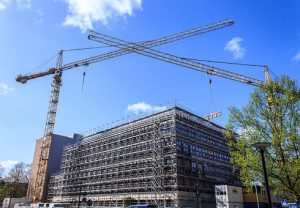Migrate to Australia: Melbourne industrial boom
24 September 2016 by News DeskMigrate to Australia where Melbourne’s industrial property market will continue to grow over the next 12 months.
 Migrate to Australia where Melbourne’s industrial property market will continue to grow over the next 12 months.
Migrate to Australia where Melbourne’s industrial property market will continue to grow over the next 12 months.
Migrate to Australia where, in Melbourne, latest research shows the highest level of take-up ever recorded for the city’s industrial market, with a total of 731,000 sqm of space absorbed over 2015.
The market has already established its strength in 2016, with recorded take-up for the year’s first half at 377,000 sqm.
Victoria’s economy is being driven by population and job growth as well as structural change in the automotive and broader manufacturing industry and their supply chains.
“Melbourne industrial markets have seen activity that is already well ahead of previous years, and are now leading the nation in terms of take-up relative to long term averages,” says Annabel McFarlane from JLL’s Strategic Research team in Australia.
Migrate to Australia: Melbourne industrial property boom
A long-term view shows the logistics sector has taken the biggest leap forward over the past decade, with JLL’s research showing the ‘transport, postal and warehousing’ category accounted for 29 percent of total take-up in Melbourne’s industrial market over 2007-12, but rose to 35 percent of share over 2013-16
The logistics sector’s strength can be attributed to a few major factors, says Matt Ellis, JLL Head of Industrial – Victoria– the sector’s confidence in the economy due to strong population growth and its flow-on effect for retail trade, and business structural change.
Outsourcing of logistics functions has also contributed to this result; Retailers have been reducing costs by increasing their supply chain efficiency, embarking on property partnerships with logistics companies.
“Logistics and distribution capabilities are increasingly being outsourced, and efficiencies are being sought through co-location to decrease overall occupier footprint as well as vehicle movements and the deployment of leading materials handling technology,” Ellis says.
“Transport companies like Toll and TNT are also looking for efficiencies, and second-tier groups are being lured to new premises,” which has supported the demand for space.
Take-up for most other sectors in Melbourne’s industrial market have remained reasonably static over the decade with the exception of retail, which rose from 21 percent of take-up share over 2007-12 to 23 percent over 2013-16, while wholesale trade moved from 5 percent to 7 percent of take-up share.
For expert info and help with buying property in Australia, Click Here
Want to get a job Down Under? Click here for expert help: How to Get a Job in Australia
Click here for expert help with travel visas: Travel Visas to Australia
Click here for tourist information about Australia: Visit Australia


